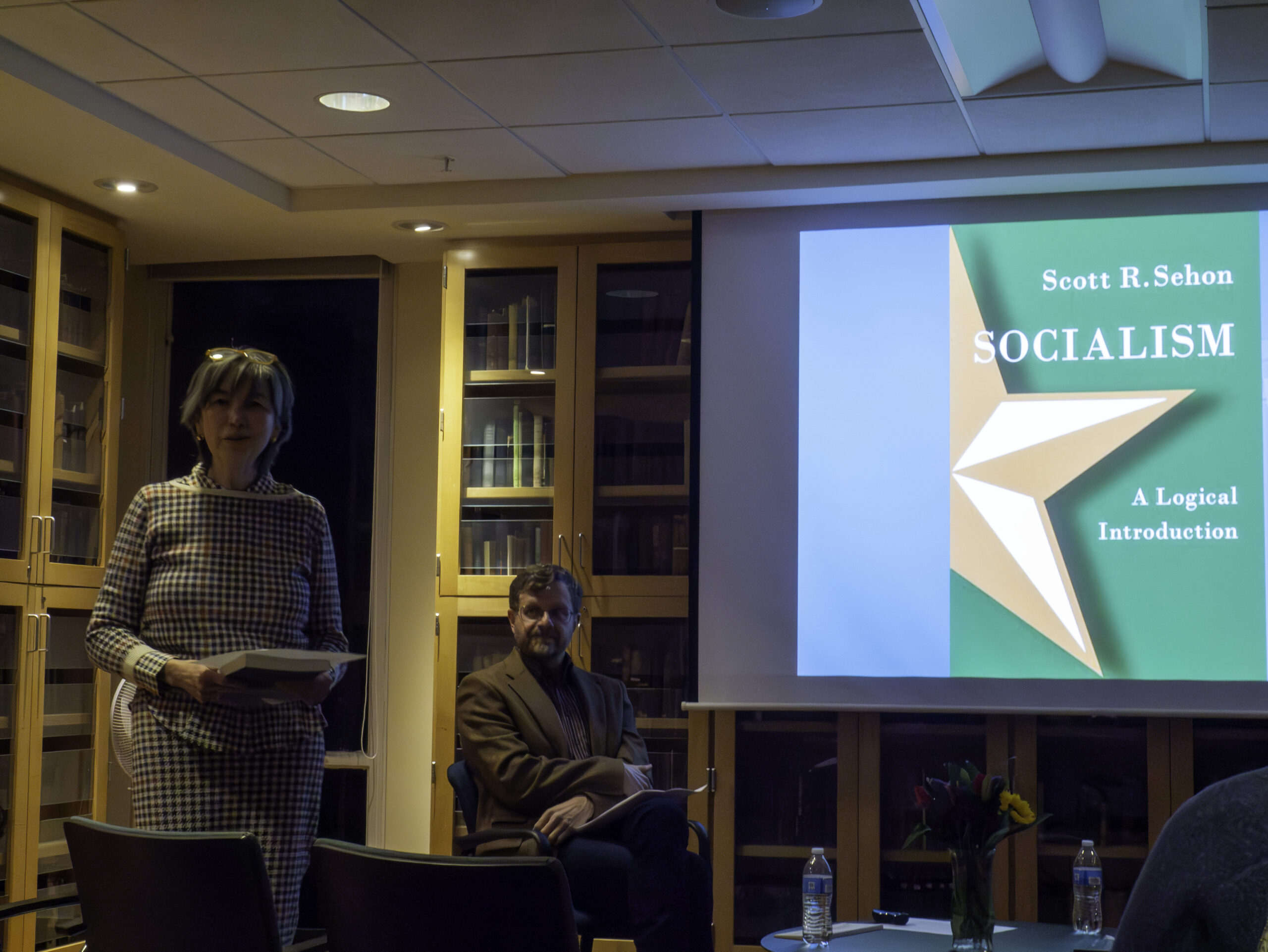Professor Scott Sehon launches new book “Socialism: A Logical Introduction”
December 6, 2024
 Isa Cruz
Isa CruzOn Thursday, Professor of Philosophy and Chair of the Philosophy Department Scott Sehon launched his new book “Socialism: A Logical Introduction,” which explores the arguments for and against socialism. In his book, Sehon considers rights-based arguments for socialism, then discusses human well-being in both socialism and capitalism.
Sehon approaches these in a new way: through numbered steps.
“As a number of my students here know, I break things down into numbered step arguments. I take what an author is saying, and I say, ‘Well, it looks like this is the argument, premise one, premise two, inference in three or maybe further inferences,’” Sehon said. “In the book, I step back from the contemporary arguments for and against socialism and capitalism and lay out the arguments as I see them.”
Sehon’s book also explores socialism and capitalism and their relations to human well-being. Through his numbered step arguments, he argues that socialism should be chosen over capitalism, because it promotes better human well-being and does not violate the moral rights of individuals. Sehon concludes his book by saying that society should move in a socialist-democratic direction.
“Now, of course, one could just run the argument in the other direction and say that capitalism better promotes human well-being over socialism, and capitalism doesn’t violate rights,” Sehon said. “So, at this point, I’m just assuming these things for the sake of argument. The structure of the book is then to talk a lot about those premises and further arguments for the premises of that argument and defend those as opposed to the premises for the capitalist.”
Sehon initially got the idea to approach this topic through numbered-step arguments from his previous work with University of Pennsylvania professor Kristen Ghodsee on an article titled “Anti-anti-communism.”
“[The article] talked about various attacks on left-leaning political views. And [Ghodsee] was bringing in various data from the post Soviet socialist bloc, whereas I was talking about the arguments and playing them out in these numbered steps,” Sehon said. “To my surprise, that article was shared thousands of times on Facebook, and we’ve gotten interesting responses to it. And I thought, ‘Well, maybe there’s some market for doing something like this.’”
Sehon’s work usually touches upon metaphysics, philosophy of mind, free will and philosophical action—but he decided to stray from these topics to write this book during the pandemic.
“I had another project that I was supposed to be working on, and I found myself thinking about this a whole lot more. And so, in some sense, I procrastinated writing the book that I was planning on writing by writing this book,” he said.
Sehon ultimately hopes his book breaks the echo chamber of information that he believes people are often trapped inside when talking about socialism and capitalism.
“So what do I hope the book accomplishes?… I’m hoping that among people reading it on both sides that it actually does at least increase the degree to which we can reason with each other about these things. So much of our political discourse these days is just shouting and calling you by names and living in information silos where we don’t know anything about what the other side actually thinks,” Sehon said. “I’m really trying to take the capitalist argument seriously, and I’m trying to lay out the socialist arguments seriously and clearly and explicitly, such that we can make good progress.”
Amaya Nicklas ’27 attended the talk because of her interest in Sehon’s philosophical rather than historical approach to socialist arguments. Following the talk, Nicklas was left thinking about his perspective on well-being and rights.
“He talks about rights being like a trump card. So, even if well-being is maximized in an alternative situation, there are some rights which we will not deny to anyone. The most concrete one, to me, seems like the bread of life, because it’s intractable. You can’t go back from it. And I think we assume that everyone should be able to have it,” Nicklas said. “But I think there’s a lot of cases where we do take that away when it maximizes well-being. So, I’d be interested to see how [Sehon] responds to that.”

Comments
Before submitting a comment, please review our comment policy. Some key points from the policy: